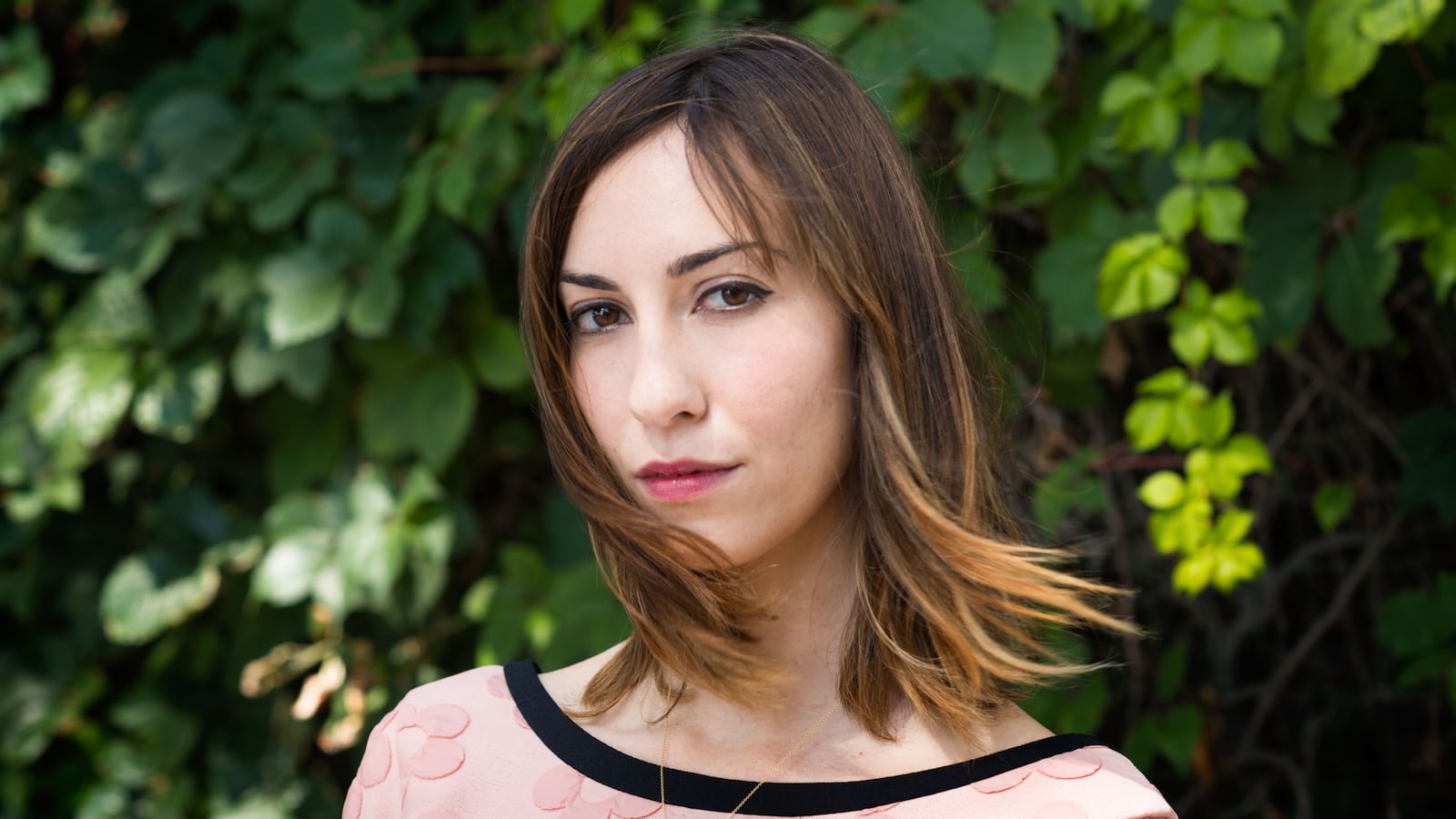Gia Coppola sounds surprisingly tentative for someone who has made such a self-assured first feature. “I was really nervous about working with actors because my only real experience was using my friends in short films,” she says of Palo Alto, her totally engaging, emotionally bold, and often poetic drama based on James Franco’s stories about high school kids floundering on the edge of adulthood. “I feel like it’s hard for me to articulate what I want, and I’m pretty shy. But I just tried to be as honest as possible and tell them what the scenes meant to me. And I had seen when I was working on Twixt how my Grandpa would work with actors.” There is something authentic and warm in the way she evokes “my Grandpa,” the great Francis Ford Coppola.

Palo Alto, an ensemble piece starring Emma Roberts, Franco, and Jack Kilmer (Val’s son, in his first role), came about because Coppola met Franco at a party (just try to maneuver that without connections). He sent her the book, which was about to be published. She had recently graduated from Bard, where she studied photography, and sent him some of her work. The project took off from there. What Franco obviously gleaned, and Palo Alto demonstrates, is that she has a true director’s eye, and talent that outweighs insider access.
As she sips tea in a lounge at the Greenwich Hotel, her soft-spoken, modest style includes a casual acceptance of her advantages. Her navy-blue satin top and pants look like elegant Chinese pajamas; they were designed by Trademark, a new line started, she says, by “these young girls I know.” (She meant Tory Burch’s former stepdaughters.) She pairs the pj-look with white terry hotel-style slippers—she’s the walking embodiment of privilege-meets-understatement. It’s well-known that her life began shadowed by tragedy. Her father, Gian-Carlo, Francis’s oldest child, was killed in a boating accident before Gia, now 27, was born.
Her family connections did the opposite of driving her toward the movie business, though. “It wasn’t in my mindset to make a feature-length film until James proposed the idea. I think I was a little too timid about stepping into that world, but he assured me, and he supported me enough so that all of that pressure and scariness about going into my family’s—kind of, whatever, their field—was able to drop away,” she says. “He took me through it step by step.”
Franco told her to choose the stories from the book she liked best, then to “take one of the stories and shoot it with your friends and kind of make a test version. So I did that and I was really able to see what was working and what wasn’t. Then I decided to take all of the stories that I’d made and combine them and intertwine the characters.”
It couldn’t have been easy to create a graceful, coherent film out of a collection of loosely-connected stories, but Palo Alto is focused without being plot-driven. Kilmer plays shy Teddy, and Nat Wolff his out-of-control friend, Fred. The narrative centers around Roberts’s character, the virginal April, who has an affair with her soccer coach, Mr. B., played by Franco. (When the micro-scandal about Franco’s online invitation to a 17-year-old broke, some speculated it was stealth promotion for this movie; really, what serious film would want that kind of buzz?)
Coppola’s impressionistic style evokes her Aunt Sofia’s work, especially Somewhere. Palo Alto is composed of beautifully framed images that often carry the weight of the scene’s meaning. After her first kiss with the soccer coach, April stares silently out the window of a car, looking dreamy but unsettled as she glides along. The sex scene between April and Mr. B. is a montage of discreet close-ups. “I wasn’t interested in shooting it in that generic way of ‘sex scene,’” Coppola says. “I was trying to think of a more creative way of portraying what was going on. So we shot it in an abstract way, and my editor, Leo Scott, came up with this interesting, kind of uncomfortable edit style.”
Even the combined Coppola-Franco names didn’t make wallets fly open for such a delicate project, though; it took two years for the film’s financing to come together. Eventually Franco took an acting job so his production company could put his salary into Palo Alto. “A lot of people didn’t want to hire me because I hadn’t made a movie before. And I wanted to work with young actors. Jack hadn’t made a movie before, and it was a low-budget thing, so yeah—James stuck by me,” Coppola says. “It was heartbreaking at times to be so emotionally invested in something and think it’s going and you have it fall apart. It’s like being in love with someone who doesn’t love you back.”
She worked on a small scale, shooting for 30 days, surrounding herself with people she knew and had worked with before, and listening to her young actors. “The kids know better than me right now what’s cool and what’s not, so sometimes they’d say, ‘Oh, I wouldn’t use that word.’” That’s one lesson she picked up from her grandfather. “He said that your actors have good ideas too, and [they] know the characters better than you after a certain point, so don’t dismiss those ideas.”
And the film is overflowing with friends and family. Coppola’s mother, Jacqui Getty, plays April’s Mom. Her great-aunt Talia Shire has a small scene as a high school counselor; her cousin Robert Schwartzman (Shire’s son and Jason’s brother) did the music. Val Kilmer has a small role. And when you hear the off-screen voice of a judge, that’s Grandpa Francis.
Coppola is officially credited as “creative associate” on Twixt, Francis’s 2011 horror film with Val Kilmer, but her role was more familial. “I worked behind the scenes so it was like my film school. I got to sit next to my Grandpa every day and drive him to work and drive him home and just hear him talk about how to make a movie,” she said. She was still thinking about her career options. “I didn’t know what I wanted to do. I went to bartending school for a little bit, and then my Grandpa was going to make this movie and I never really had the opportunity to just be with him on a movie set, I was always in high school. I really just wanted to spend that time with him and see how it’s done.”
She had spent time on his sets very early on. As a 3-year-old she wandered on screen in The Godfather Part III. “I don’t know if it’s a real memory or because I’ve seen the scene and I’m kind of making something up. But my memory is that I was very attached to Sofia and [saw] her dancing. I just wanted to be close to her so I ran out on the dance floor and my Grandpa thought it was cute and kept it in.”
The first on-set memory she is certain of came two years later in Dracula. “My Mom and I had made my Halloween costume, and I was The Little Mermaid. I was showing my costume off, and got a tap on my shoulder and I turned around and there was Gary Oldman in his bat costume, which was a really frightening bat costume,” says. She remembers “being totally speechless and shocked.” But she can bring even that privileged memory down to earth. “As a kid it’s more exciting to be at the craft service table.”





